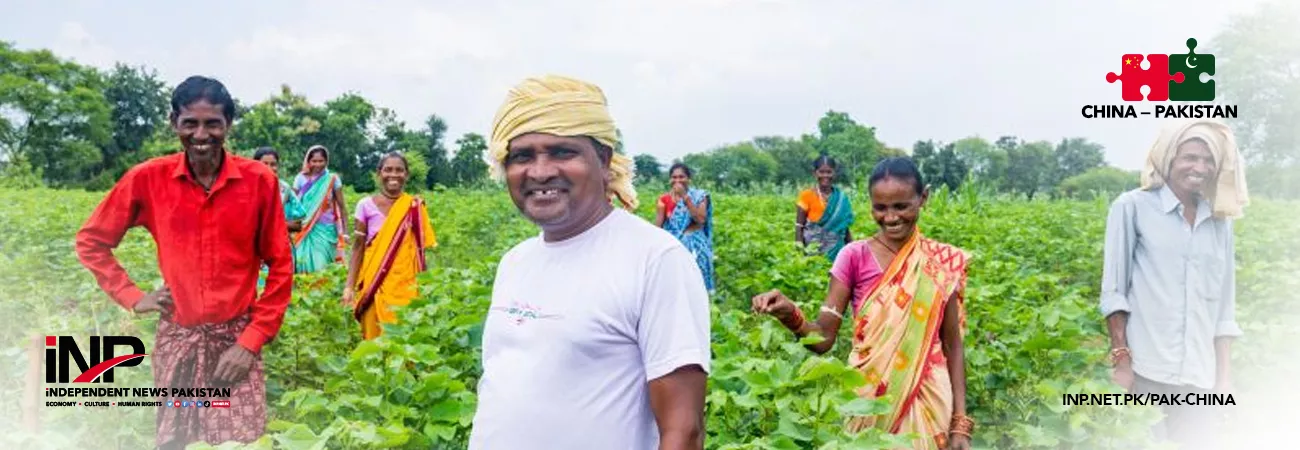i NEWS PAK-CHINA
Pakistan is facing an alarming decline in cotton production, it looks to enhancing cooperation with China on high-yield, climate-resilient cotton varieties, Javed Hassan, Cotton Advisor of the All-Pakistan Textile Mills Association (APTMA) told China Economic Net (CEN). “In the past ten years, we have lost half of the yield and production of cotton. This year, we are going to produce 5.5 million bales as estimated, while it was 14 million bales in 2012. About half of our demand for textiles relies on import”, he elaborated. “A major reason is the lack of good cotton varieties against climate change”, he added. Mr. Javed Hassan told CEN reporter that in terms of cotton yield per hectare, China is number one with about 1,844 kg per hectare. While in Pakistan, it is 467 kg per hectare.
When farmers cannot get more yield per hectare, they are unable to get more profit and choose to go for other crops. “But we could not import varieties from China directly, because the environment is different. In China, there is no curl leaf disease, but in Pakistan, it is prevalent”, he explained. Therefore, he suggests that Pakistan send local highly productive varieties to China, so their institutions can convert them with GM technology, and then Pakistan can bring it back and get more yield. It is learned that genetic research is underway in collaboration with the Chinese Academy of Agricultural Sciences, which is working on a holistic approach to improve Pakistan’s cotton sector jointly with mechanical planting and picking companies.
“Not only that, seed certification, mechanization, and solarization are among those needed to enhance the quality and production of cotton in Pakistan”, he said. “In Pakistan, about 70% to 80% of seeds given to cotton farmers are not certified. Whereas in China, I know that there is a 100% certified seed system. This is what we can learn from China. Similarly, we should popularize mechanical cotton pickers and combining planters for more efficient production. Furthermore, we also need solarization, because in some areas there is fertile land but scarce water resource. With solar panels to generate power, we can produce more cotton from less water”, he added.
Credit: Independent News Pakistan-INP









